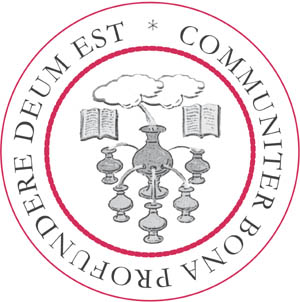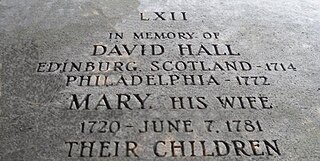
Benjamin Franklin was an American polymath: a leading writer, scientist, inventor, statesman, diplomat, printer, publisher and political philosopher. Among the most influential intellectuals of his time, Franklin was one of the Founding Fathers of the United States; a drafter and signer of the Declaration of Independence; and the first postmaster general.

The Protestant Ethic and the Spirit of Capitalism is a book written by Max Weber, a German sociologist, economist, and politician. It began as a series of essays, the original German text was composed in 1904 and '05, and was translated into English for the first time by American sociologist Talcott Parsons in 1930. It is considered a founding text in economic sociology and a milestone contribution to sociological thought in general.
How to Live on Twenty-four Hours a Day is a short self-help book "about the daily organization of time" by novelist Arnold Bennett. Written originally as a series of articles in the London Evening News in 1907, it was published in book form in 1908. Aimed initially at "the legions of clerks and typists and other meanly paid workers caught up in the explosion of British office jobs around the turn of the [twentieth] century", it was one of several "pocket philosophies" by Bennett that "offered a strong message of hope from somebody who so well understood their lives". The book was especially successful in the US, where Henry Ford bought 500 copies to give to his friends and employees. Bennett himself said that the book "has brought me more letters of appreciation than all my other books put together".
Work ethic is a belief that work and diligence have a moral benefit and an inherent ability, virtue or value to strengthen character and individual abilities. Desire or determination to work serves as the foundation for values centered on the importance of work or industrious work. Social ingrainment of this value is considered to enhance character through hard work that is respective to an individual's field of work.

The Library Company of Philadelphia (LCP) is a non-profit organization based on Locust Street in Center City Philadelphia. Founded as a library in 1731 by Benjamin Franklin, the Library Company of Philadelphia has accumulated one of the most significant collections of historically valuable manuscripts and printed material in the United States.

Silence Dogood was the pen name used by Benjamin Franklin to get his work published in the New-England Courant, a newspaper founded and published by his brother James Franklin. This was after Benjamin Franklin was denied several times when he tried to publish letters under his own name in the Courant. The 14 Mrs. Silence Dogood letters were first printed in 1722.
The Idler was a series of 103 essays, all but twelve of them by Samuel Johnson, published in the London weekly the Universal Chronicle between 1758 and 1760. It is likely that the Chronicle was published for the sole purpose of including The Idler, since it had produced only one issue before the series began, and ceased publication when it finished. The authors besides Johnson were Thomas Warton, Bennet Langton, and Joshua Reynolds.
Pay it forward is an expression for describing the beneficiary of a good deed repaying the kindness to others rather than paying it back to the original benefactor. It is also called serial reciprocity.
Time Is Money may refer to:

Saint Monday is the tradition of absenteeism on a Monday. Saint Tuesday is the less common extension of this to a Tuesday. The tradition of taking Monday off has been common among craft workers since at least the seventeenth century, when the workweek ran from Monday to Saturday as had been the custom and expectation for centuries.
Slang terms for money often derive from the appearance and features of banknotes or coins, their values, historical associations or the units of currency concerned. Within a language community, some of the slang terms vary in social, ethnic, economic, and geographic strata but others have become the dominant way of referring to the currency and are regarded as mainstream, acceptable language.

In Praise of Idleness and Other Essays is a 1935 collection of essays by the philosopher Bertrand Russell.

80,000 Hours is a London-based nonprofit organisation that conducts research on which careers have the largest positive social impact and provides career advice based on that research. It provides this advice on their website, YouTube channel and podcast, and through one-on-one advice sessions. The organisation is part of the Centre for Effective Altruism, affiliated with the Oxford Uehiro Centre for Practical Ethics. The organisation's name refers to the typical amount of time someone spends working over a lifetime.

David Hall was a British printer who immigrated from Scotland to America and became an early American printer, publisher and business partner with Benjamin Franklin in Philadelphia. He eventually took over Franklin's printing business of producing official documents for the colonial province of Pennsylvania and that of publishing The Pennsylvania Gazette newspaper that Franklin had acquired in 1729. Hall formed his own printing firm in 1766 and formed partnership firms with others. He published material for the colonial government.

The Russian spring punch is a highball cocktail of vodka and liqueur, per IBA specified ingredients. The International Bartenders Association lists the beverage in its New Era Drinks category.

Hickford's Long Room was a public concert room in London, which ran from April 1713 until 1787; it became known as Rice's Rooms from 1788. Harrison's date of 1779 is not correct. It was paid for on a subscription basis to those who could afford to patronize the arts, such as the nobility. The 1922 Groves noted that "most of the great performers, both vocal and instrumental, who visited England, gave their concerts there." The room became a place to see successful musicians play, including Francesco Scarlatti, Francesco Geminiani, Gluck in 1746, Mozart (1765), Francesco Maria Veracini, Pietro Castrucci and Matthew Dubourg. For a time in the 1740s and 50s, it was the only concert room of note in the West End of London.
Timeblocking or time blocking is a productivity technique for personal time management where a period of time—typically a day or week—is divided into smaller segments or blocks for specific tasks or to-dos. It integrates the function of a calendar with that of a to-do list. It is a kind of scheduling.
In organizational behavior and psychology, Economic evaluation of time refers to perceiving of time in terms of money.

Critique of work or critique of labour is the critique of, and/or wish to abolish, work as such, and to critique what the critics of works deem wage slavery.
"One Thousand Dollars" is a short story by O.Henry, with his usual twist ending. This story was published in the collection The Voice of the City in 1908.











